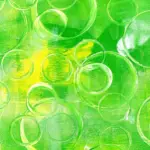Amazon Affiliate Disclaimer
As an affiliate, we earn from qualifying purchases. We get commissions for purchases made through links in this post.
Can Carbonated Water Cause Weight Gain?
The popularity of carbonated water as a zero-calorie substitute for sugary sodas is growing. It’s the perfect thirst quencher, stomach filler, and hydrator. You might be surprised to learn that this fizzy drink aids in weight loss. Since carbon dioxide in sparkling water has a satiating effect, drinking it can help you feel full with fewer calories. Those on a calorie-restricted diet would do well to swap soda for carbonated water to feel full for longer and cut back on their calorie consumption.
Nutritional Value Of Carbonated Water
Carbonated water has no calories and no added sugars. Some examples of these are seltzer, soda water, and sparkling water. The FDA notes that certain types of sparkling mineral water, like those found in Europe, contain minerals and trace elements that originate in an underground source.
There are typically negligible amounts of copper, zinc, calcium, and sodium across all varieties of carbonated water. In contrast to carbonated beverages, seltzer water contains no calories or nutritional value.
There are some varieties, such as seltzer water, that do not contain any nutrients at all. The way in which carbonation is created is the primary differentiating factor between them. Caution is warranted because many manufacturers produce their products with artificial flavors, citric acid, and additional sugar. Plain carbonated water is your healthiest bet.
Carbonated Water And Weight Loss
Soda water, also called seltzer water, is a low-calorie substitute for sugary soda since it has no sugar or fat. Meaning that limiting your consumption level to maintain a healthy weight is not needed. Additionally, the carbon dioxide gases in it cause you to feel satiated.
A study conducted in 2012 and published in the Journal of Nutritional Science and Vitaminology looked into the effects of carbonated water on feelings of hunger and the rate at which the heart beats.
Compared to the increase in heart rate seen in women after drinking water alone, the increase in heart rate in women after drinking this drink was significantly higher. After drinking carbonated water for forty minutes, they reported feeling fuller. The study, however, cannot be considered conclusive because there were only 19 women who participated in it.
So far, there is scant evidence linking carbonated water to reduced body fat. The vast majority of research suggests that substituting water for sugary drinks can aid in the fight against obesity. Drinks like seltzer are just carbonated water and have the same effects on hydration and weight as water.
For instance, a study conducted and published in October 2016 in the journal Nutrients found that exchanging one serving of soda or beer for one serving of water could assist with weight loss and reduce the likelihood of becoming obese. According to the findings, beverages with alcoholic and high sugar content have very little to no nutritional value.
The Effect Of Carbonated Water On Metabolic Health
In August 2017, the scientific journal Nutrients published a review article that discussed the association between drinking carbonated water and developing diabetes. In a study that lasted for six months, researchers found that obese participants who replaced two calorie-containing beverages per day with water had a significant drop in their fasting blood sugar levels and an increase in their water consumption.
Overweight and obese women who cut out one daily serving of diet beverages and substituted water lost more weight, according to two clinical trials discussed in a recent review published in the Nutrients. Their insulin sensitivity improved as well.
The studies discussed above suggest that drinking carbonated bicarbonate-rich water can help lower fasting glycoalbumin, plasma glucose, insulin, and serum fructosamine. The results may not be definitive because most studies were relatively small.
As we’ve already established, some mineral waters are rich in trace minerals like zinc and magnesium. Those who are insulin resistant or at risk for developing diabetes would do well to up their magnesium intake.
This suggests that a lack of magnesium could play a role in developing diabetes and other metabolic abnormalities. Magnesium intake from drinking mineral carbonated water can help alleviate diabetes symptoms.
Other Relatable Effects Of Drinking Carbonated Water
In a study that compared the two types of water, researchers found that the effects of either plain lab water or sparkling mineral water on tooth enamel were identical. However, it is essential to keep in mind that carbonated water with a citrus flavor is more acidic, and as a result, it may contribute to tooth decay.
Some anecdotal evidence suggests that drinking carbonated liquids, such as carbonated water or sparkling water, can harm your digestive system. This is yet another myth that has persisted for a long time.
Carbonated water is superior to regular water for relieving constipation in stroke patients, according to a meta-analysis posted in the Cochrane Database of Systematic Reviews in January 2014. The study was conducted on people who had previously suffered from a stroke.
You may be aware that consuming carbonated water increases your risk of osteoporosis because it removes calcium from the bones. Some evidence suggests that drinking cola can affect bone mineral density, but drinking other types of carbonated beverages does not have this effect.
Researchers from Harvard Health Publishing discovered that drinking carbonated water did not increase the likelihood of developing osteoporosis or bone fractures. On the other hand, there is some speculation that the caffeine found in colas contributes to the development of these conditions.
If you have a history of experiencing frequent bouts of flatulence, you should probably avoid drinking carbonated water. Sticking with water is your best bet if you’re suffering from heartburn. According to the Cleveland Clinic, heartburn can be made worse for people with gastroesophageal reflux disease (GERD), who should avoid carbonated beverages.
Conclusion
In general, people who are trying to lose weight should consider drinking carbonated water. You should use this in place of regular cola, soft drinks, and other beverages that contain sugar. To boost the flavor, try mixing in some mint leaves and freshly squeezed lemon juice.
Read also:
- baby on sparkling water
- baby loves sparkling water

- sparkling water in babies

- giving baby sparkling water

- sparkling water for child

- does sparkling water affect breastfed baby

Please be careful and use at your own risk
None of the authors, contributors, administrators, or anyone else connected with Water Exotic, in any way whatsoever, can be responsible for your use of the information contained in or linked from these web pages.










